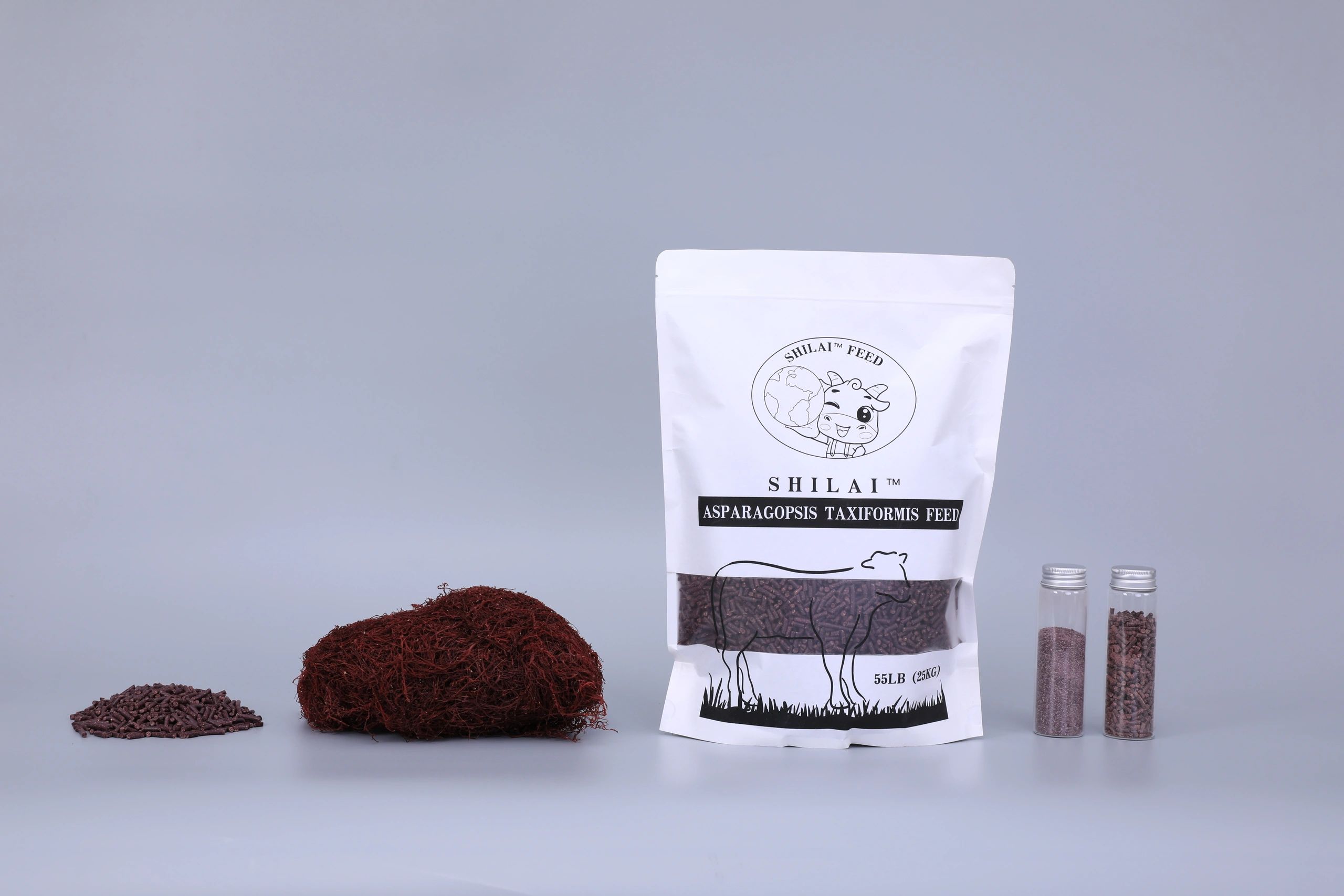
The agriculture sector worldwide produces a notable share of greenhouse gases, mainly attributable to livestock production.
Because methane traps far more heat per molecule than carbon dioxide, its emissions are particularly harmful to the climate.
Researchers are investigating Asparagopsis taxiformis, a red marine alga, as a potential breakthrough for reducing methane from ruminants.
The alga carries a bioactive agent that inhibits the rumen microbes responsible for methane, lowering emissions from animals.
Incorporating Asparagopsis taxiformis into animal diets has yielded encouraging outcomes in early trials, pointing to a practical route for cutting agricultural greenhouse gases.
- Asparagopsis taxiformis also contributes extra advantages that can support sustainable farming transitions.
- Greater nutrient uptake and robustness
- Potential to stimulate rural economies via seaweed value chains
Even though extensive research and validation are ongoing, Asparagopsis taxiformis appears poised to be a meaningful mitigation option.
Exploring the Commercial Promise of Asparagopsis taxiformis Powder as a Feed Ingredient
A powdered or concentrated form of Asparagopsis taxiformis has the potential to reshape animal feed approaches and outcomes.
This marine plant contains bioactive and nutritional traits that can enhance livestock performance and productivity.
Employing A. taxiformis powder in feed mixes has achieved methane declines in trials and may improve micronutrient profiles.
Expanded experimental work is required to refine inclusion levels, manufacturing approaches, and comprehensive safety data.
Asparagopsis taxiformis: Driving New Models of Sustainable Livestock Production

This red seaweed is gaining attention as an approach to address environmental problems tied to conventional animal agriculture.
Integrating the algae into feeds may allow producers to substantially reduce on-farm methane emissions and environmental impacts.
Research suggests the seaweed can additionally support better animal health and production performance under certain conditions.
More work to verify long-term safety and logistical viability is necessary, though early findings look promising.
Methane Reduction Through Asparagopsis Feed Additive

This red alga is being developed as an approach that can substantially cut methane produced by grazing ruminants.
The seaweed’s effect stems from its ability to inhibit methanogenesis, the microbial process that creates methane in the rumen.
- Published experiments indicate that Asparagopsis supplementation can substantially lower methane emissions in ruminants.
- Incorporating Asparagopsis into rations is an environmentally sound method for methane abatement.
- Farming operations are starting pilot projects to assess the adoption of Asparagopsis in feeds.
Asparagopsis: The Marine Ingredient Shaping Sustainable Livestock Systems
A promising marine-derived solution has appeared, with Asparagopsis taxiformis capable of cutting methane in ruminants.
- Research trials show that diet inclusion of Asparagopsis leads to significant methane declines and consequential emissions benefits.
- The technology points to reconciling productive agriculture with lower emissions and improved sustainability.
As decarbonization efforts accelerate, Asparagopsis represents a distinctive marine-based pathway to reduce agricultural methane.
Improving the Performance of Asparagopsis taxiformis as a Methane-Mitigating Feed Additive
Work is underway to determine optimal processing methods and inclusion rates to enhance A. taxiformis effectiveness.
The Science Behind Asparagopsis taxiformis's Methane-Lowering Effects

Research explains the effect as chemical interference with rumen methanogens, reducing methane synthesis during digestion.
Researchers point to bromoform as a primary bioactive in Asparagopsis that suppresses methanogens, with continued evaluation of long-term impacts.
Integrating Asparagopsis into Feed Formulations for Sustainable Farming
The species provides a complementary mix of nutrients and bioactives that feed formulators can leverage for sustainability.
Incorporating the species into feeds may raise nutrient levels, optimize digestion, and contribute protective antimicrobial actions.
Asparagopsis taxiformis as a Nature-Based Path to Greener Food Production
Asparagopsis taxiformis represents an emerging, nature-based intervention to lower agricultural emissions and support sustainable food systems.
- Furthermore, the algae’s nutrient density can make feeds more nutritious for livestock.
- Research teams and industry players are assessing the species for multiple applications within food production chains.
Mainstreaming Asparagopsis use has the potential to achieve measurable reductions in the environmental effects of livestock agriculture.
Asparagopsis Feed Additive: Benefits for Health and Productivity
The seaweed is gaining recognition for potential dual benefits: emissions reduction and enhancements in animal performance.
Findings indicate the seaweed may improve digestive efficiency and feed conversion, positively affecting growth metrics.
Supplementation may confer antioxidant or immune benefits that bolster animal defenses and reduce susceptibility to illness.
Growing market and regulatory interest in emissions reduction underscores the potential role for Asparagopsis as development continues.
Methane-Cut Feed with Asparagopsis: Towards a Carbon Neutral Future
Facing intensifying expectations to curb emissions, farming may turn to Asparagopsis as part of its mitigation toolkit.
- Scientists believe the seaweed contains compounds that disrupt methanogenesis in the rumen, thereby lowering methane production.
- Multiple trials have reported encouraging outcomes, with pronounced methane declines in animals fed Asparagopsis.
This innovative approach not only offers a greener feed option but also the potential to transform food production toward climate-resilient outcomes.